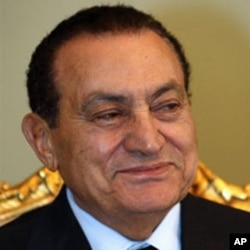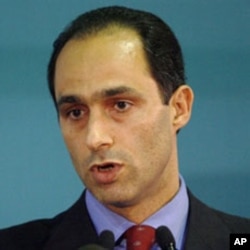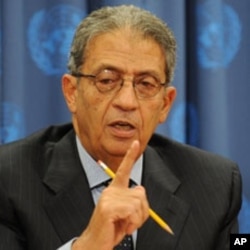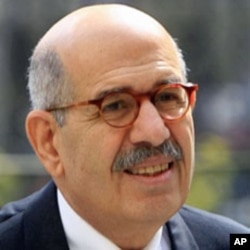The Egyptian parliamentary election is set to be held in October, 2010 and the presidential election is scheduled to be held in September, 2011. President Hosni Mubarak has been ruling the country for 29 years and the election will be the second one in Egypt's history.
Facts
- By the terms of a 2005 amendment to the Egyptian constitution, only parties established for more than five years with at least five percent representation in parliament can nominate a candidate.
- Independent candidates can run only if they are endorsed by 250 elected members of Egypt's representative bodies.
- Presidents are elected for six years with no term limits.
- Religious parties are banned.
Major Candidates
The Ruling National Democratic Party (NDP)
Hosni Mubarak
President Mubarak, 82, has served as Egypt's president for 29 years. He has not formally announced he will run for re-election, and NDP officials have said a decision will not be made until next year.
In a 2006 speech, he said he would run Egypt until his "last breath." However, concerns over his health have been mounting steadily since his gall bladder surgery in Germany in March 2010.
Gamal Mubarak
Hosni Mubarak's younger son is widely seen as positioning himself to run for president should his father choose not to seek a sixth term. Gamal, 46, previously worked in London as an investment banker. In 2002, he was nominated by his father to serve as General Secretary of the NDP Policy Committee.
Supported by Egypt's business elite, it is unclear if the younger Mubarak has the support of the military and security apparatus, traditionally a prerequisite for leaders of the Republic. Observers were stunned in late August 2010 when one of President Mubarak's sternest critics, Saad Eddin Ibrahim -- a man who was jailed officials said for defaming Egypt, but some suspect it was because of his comments against a Gamal succession -- signed a pro-Gamal petition.
Omar Suleiman
Since 1993, he has been director of the Egyptian General Intelligence Services (EGIS), the country's national intelligence agency. Omar Suleiman, 74, also is a minister without portfolio (that is, he does not head a specific department, but can attend cabinet meetings).
A close aide to President Mubarak, he is closely involved with Egypt's most important foreign policy issues, such as relations with Israel. Suleiman enjoys the support of the all-important security apparatus and because Gamal Mubarak is a civilian, Sulieman could emerge as the main contender, should Hosni Mubarak decide not to run.
Amr Moussa
Secretary-General of the Arab League and an outspoken former foreign minister, Amr Moussa, 74, is popular in Egypt for his criticism of Israel.
Some Mubarak opponents suggest he appointed Moussa to the Arab League in order to sideline him politically. When asked if he would run, did not rule it out, though has not been seen as actively preparing a campaign.
Independent - National Association for Change (NAC)
Mohamed ElBaradei
Mohamed ElBaradek, 68, is the former director general of the International Atomic Energy Agency (IAEA). He and the IAEA were jointly awarded the Nobel Peace Prize in 2005. Enjoys popular support, but has said he will not run unless constitutional restrictions on independent presidential candidates are lifted.
In a surprise move in August of 2010, ElBaradei officially joined forces with the Muslim Brotherhood, which has quietly backed him from the start. ElBaradei has recently called for a total boycott of the elections and signing petitions, as a means of unmasking a "shameful democracy."
Al-Ghad Party
Ayman Nour
A former member of the Egyptian Parliament, Ayman Nour, 46, founded the Al-Ghad party in 2004, to contest the 2005 presidential election.
After coming in as the runner-up to Mubarak, the ruling party subsequently stripped Nour of diplomatic immunity and, three months later, charged him with forging documents to form his party, in a case Nour said was politically motivated. He was sentenced to five years in jail. He was released in 2009.
Muslim Brotherhood
Because it is a religious party, the Brotherhood is officially banned from having a candidate in presidential elections. The Muslim Brotherhood says it has collected more than 500,000 signatures backing ElBaradei's demand for constitution reforms.













